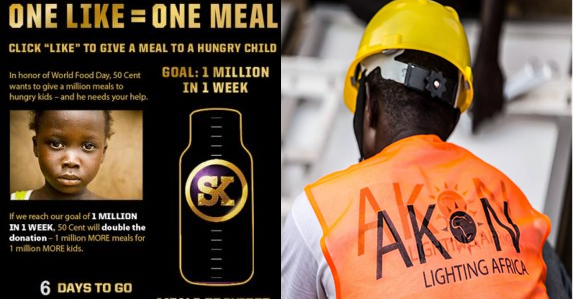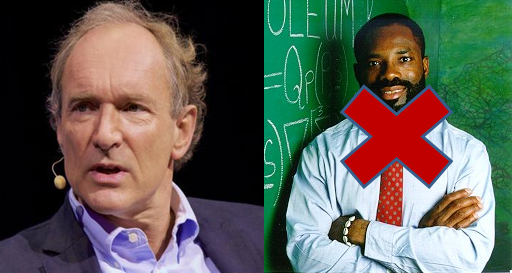This week, social network giant Facebook launched its Free Basics service in Nigeria. Free Basics is a platform designed to give users access to listed websites at no data charge to them. With 16 million users, Nigeria is Facebook’s biggest market on the continent, so launching here was a no-brainer. The service was launched in partnership with Airtel, Nigeria’s third largest telecoms operator with almost 34 million subscribers.
I would have loved to tell you that this move will revolutionize the way you and I consume music and how your favorite artist pushes it to us but my Sunday School teacher taught me about being honest. Free Basics is essentially an entry-level service, nothing fancy at all, which is great because in Nigeria, accessing multimedia content online is still not a need for most. The Alliance for Affordable Internet posits that just 500MB of mobile prepaid data can cost more than an average Nigerian spends on their children’s education. And guess what? Now that a liter of fuel is about the same price in Nigeria as it is in North America but the Naira is unable to hold its value against any of their currencies, it surely won’t get any better in the short term.

As at 14th May, 2016 – N145 per liter = 0.72 USD per liter [Graph source – Statista]
There’s a lot of innovation across Africa right now, and Nigeria in particular is home to a lot of talented developers.
Free Basics offers Nigerians, including 90 million people who are currently offline, the opportunity to access news, health, and other online services designed by Nigerian developers without having to pay for data.
(Mark Zuckerberg, CEO and founder of Facebook)
For Nigerian content developers in the music space looking for an avenue to share multimedia content to a wider audience, they will find the platform particularly restrictive. Facebook says the Nigerian service currently has 85 providers of “essential” services including sites such as Jobberman and VConnect. Facebook also has a tight control on what services come on board the platform and it could take up to 10 weeks for a developer’s submission to get vetted. I know I can’t go a day without listening to Brymo’s new album Kl?tôr?s, but does that now qualify music as an “essential” service? Plus the guidelines for creating content on the platform are unsurprisingly stringent. Service providers on Free Basics will not be allowed to upload sites that use VoIP (Voice over IP), video, file transfer, or photos larger than 200 KB and with good reason, all that stuff gobbles up too much data. Facebook doesn’t have a native music streaming service either but its restrictions on certain kinds of technology could hinder 3rd party streaming services from coming on board too no matter how economical their application is with data.
That said, there is a small window of opportunity – by democratizing access to the internet, maybe folks who use it for the first time will be able to see its usefulness and become more ardent users of the internet and potential customers of their favorite artists and not just fans. But don’t get carried away by Facebook’s awoof either, there’s a method to this. 50 Cent taught us through marketing campaigns like his “One like = one meal” for Street King energy drink that the most sustainable way to drive social programs is to make sure you business benefits while doing good. Akon has employed a similar model with his for-profit Akon Lighting Africa initiative that has (over)ambitious plans to bring solar power to 600 million Africans. The business of doing good could also be good business.

50 Cent’s One Like = One Meal and Akon’s Lighting Africa Project
So also Facebook wants more people not only online but also on its platform. The company claims it won’t advertise to those people, so it won’t pimp them out to advertisers so brazenly, but it also says that –
We may update these terms from time to time as the Free Basics Platform evolves.
That aside, the company has an opportunity to become more ubiquitous than its main rival Google. Both companies want to know everything about you through your online behavior so they can study you – what you like to eat, where you live, where you like to shop, even your relationship status. As a result of this, both companies collect a rich set of personally identifiable information (PII) on us every day that forces governments, NGOs, multinationals and just about everyone to collaborate with them if they want to get through to us.
In the big data economy, PII is gold. Never mind advertising dollars, there’s a fight for the digital soul of the planet and Africa is one of the last battlegrounds. The problem is, unlike the rest of the world where regulators fight monopolies and protect the public interest, we aren’t setting the rules of engagement properly in Africa. Remember what your Sunday School teacher taught you about the end times in Revelations and 666 and how there’ll be a log of everyone on the earth and one “government” controlling everybody? Yeah, I’m being over-dramatic but you catch my drift.
So Facebook Basics isn’t without its critics, from no less a person than the man widely regarded as the “father of the internet”.

Tim Berners-Lee is the real father of the internet not Philip Emeagwali
Speaking at the Web We Want campaign last year, Tim Berners-Lee opined that –
In the particular case of somebody who’s offering … something which is branded internet, it’s not internet, then you just say no.
No it isn’t free, no it isn’t in the public domain, there are other ways of reducing the price of internet connectivity and giving something … [only] giving people data connectivity to part of the network deliberately, I think is a step backwards.
His resistance to Free Basics and similar programs is built on the concept of net neutrality which argues that subsidizing any portion of the internet while the rest remains “free” creates an unfair advantage for Facebook and its local partners. For instance, if there are two job websites, a poor one and the best one (I’m not talking about Jobberman), if the best job website doesn’t participate in Free Basics for whatever reason but the poor one does, the consumer will consistently get poor services because the poor site has the better reach and the poor site will consistently be better patronized. Plus, let’s face it, there’s no free lunch – there will be a data charge, it just won’t be much and it won’t be passed to the Free Basics user. The data service provider could find a way for its paying customers to foot the bill and analysts argue that spreading the bill around will only keep the price point for data high for everyone else, which is the real problem.
That’s why India said no to Free Basics, for now. The Telecom Regulatory Authority of India (TRAI) listened to the arguments against the program and said they needed time to see if its demerits outweigh its merits. In Africa in contrast, we’ve rolled over and rolled out the red carpet for Facebook to step on.
Airtel? Red carpet? Never mind.
However, it’s important to note that not everyone in the digital space will benefit from a “free” internet or at least not immediately.


